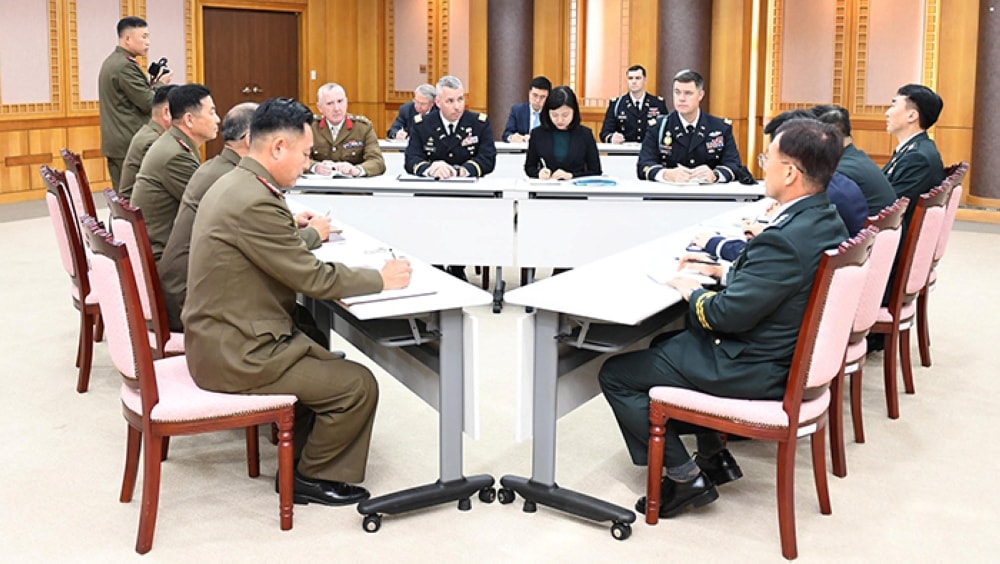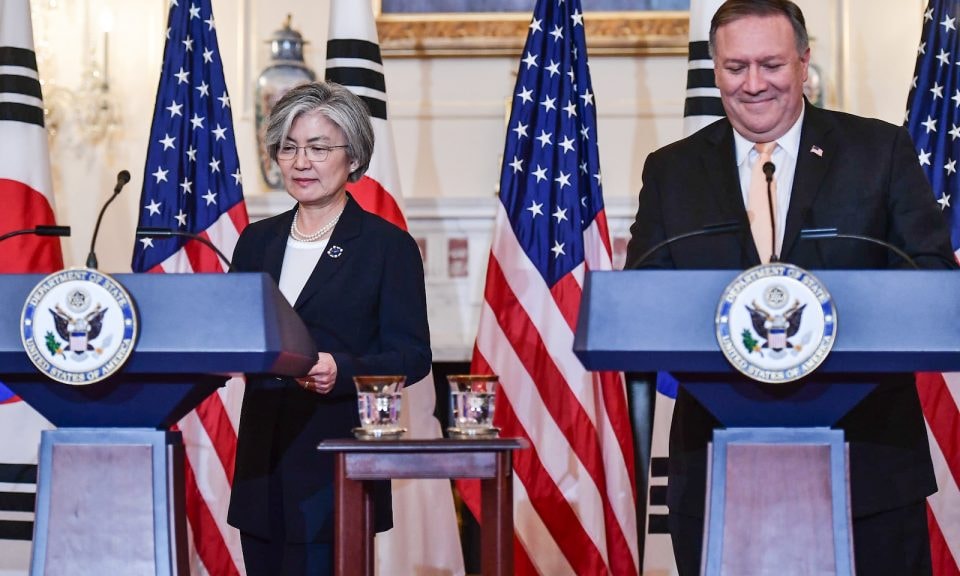US opposes establishment of no-fly zone on Korean-North Korean border
(Baonghean.vn) - The US has voiced its opposition to South Korea and North Korea's plan to establish a no-fly zone in border areas to prevent aircraft collisions, two sources familiar with the matter said, the latest sign of disagreement between Seoul and Washington, its top ally.
 |
| South Korea, North Korea, and the UN Command meet at the truce village of Panmunjom. Photo: AP |
Washington and Seoul have both publicly asserted their unity in dealing with North Korea. However, behind the scenes, there are growing signs of disagreement, as the two Koreas push ahead with plans to ease military tensions and rebuild economic ties.
The military agreement, agreed at last month's inter-Korean summit in Pyongyang, is one of the most concrete agreements between the two neighbors this year.
However, US officials expressed concern that the deal could weaken defense readiness and that the two Koreas had not made significant progress on denuclearization.
The deal includes a cessation of “all hostile acts,” a no-fly zone around the border area, mine clearance and a gradual reduction of guard posts around the demilitarized zone (DMZ).
Last week, in a phone call with his South Korean counterpart Kang Kyung-wha, US Secretary of State Mike Pompeo expressed “dissatisfaction” with the deal.
 |
| South Korean Foreign Minister Kang Kyung-wha and his US counterpart Mike Pompeo. Photo: Getty |
South Korean officials say the United States cannot publicly oppose an inter-Korean initiative, but Washington's deep involvement in sanctions enforcement and military operations gives it the ability to delay or change policy.
The no-fly zone is the issue that worries the US the most, as it would prevent direct air support exercises, according to a source familiar with the matter. The no-fly zone, which will take effect on November 1, will extend 40 km north and south of the military demarcation line (MDL) in the east, and 20 km west to accommodate fixed-wing aircraft.
In direct air support operations, aircraft provide firepower to troops operating close to enemy forces. Most of the US fighter jets based in South Korea, such as the F-16, perform this mission.
Pentagon spokesman Lieutenant Colonel Christopher Logan declined to comment on the agreement, but affirmed that the US Department of Defense supports efforts to reduce military tensions./.


